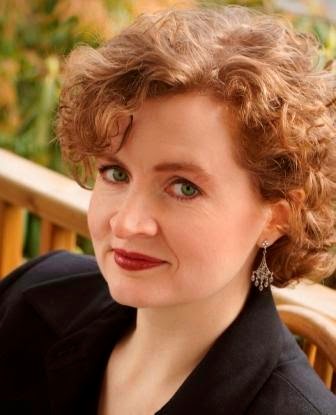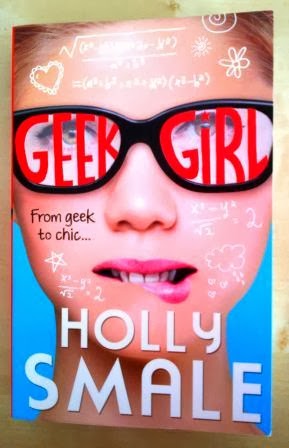We sat down for a chat...with Julie Berry
All the Truth That's in Me is a special little book that had me reading through the night. It is currently longlisted for the CILIP Carnegie medal 2014 and M asked its author, Julie Berry, some questions.
WSD: There's
a lot about silencing and persecution in All the Truth That's in Me. Did
stories like Joan of Arc's inspire the novel?
Julie Berry: Joan wasn’t the inspiration, as in
the starting trigger for the story. The project began as an exercise in point
of view – just a random challenge I gave myself after reading something about
second person voice in a craft book. The end result isn’t true second person,
but the constant address to Lucas evokes second person, I guess you could say.
At any rate, Joan wasn’t the catalyst, but as the project got underway, Joan
became a recurring motif in my thoughts, so much so that I had to introduce her
as an idea in Judith’s mind. Since writing All
the Truth I’ve studied more about Joan, and I suspect she’ll be haunting my
novels for some time to come. Sadly, she’s only one famous example of strong
women being violently silenced; she’s not unique but part of a tragic
tradition, and this is an idea that will appear in my upcoming young adult
novel from Viking, due out in Fall 2015.
WSD: I
likened the novel to poetry, particularly the emotion and adoration that you
find in oral praise poetry. Can you say a bit about this and
perhaps Judith's voice and her relationship to Lucas?
Julie Berry: First of all, thank you. I admire
poetry intensely, and while I did not consider this a novel in verse, I often
felt that the short segments, and Judith’s mode of expression, nudged the novel
in a poetic direction. I am especially fond of praise poetry, as my inclusion
of a psalm in the novel reveals. In both passionate love and religious worship,
the lover succumbs to the bliss of devotion, which effuses into language. The challenge
is to raise their expression to heights worthy of their feelings.
One of the first things I knew about Judith was
the intensity of her feelings for Lucas, and the depth of her heart, her
capacity for caring. An exchange from Pride
& Prejudice which has always stuck with me is this:
“You might have talked to me more when you came to dinner.”
“A man who had felt less, might.”
Hardly earth-shaking at first glance, but the
impression it left upon me at a tender age--a very Romantic-era notion and probably
one tinged with aristocratic snobbery, nevertheless--was the idea was that a
greater heart can love deeper and feel more. Darcy, that paragon, had feelings
running so deep as to prevent trifling, wasteful expression. In Judith’s case,
her heart and mind were rich and profound but entirely stoppered from any
outlet, so these poignant but private words for Lucas were all she had, and
thus she embroidered them richly.
WSD: What
books would you recommend to teen readers who enjoyed All the Truth That's in Me?
Julie Berry: Two that I speak about when I visit
high schools are Speak by Laurie
Halse Anderson, and The Scarlet Letter
by Nathaniel Hawthorne. I also think The
Witch of Blackbird Pond by Elizabeth George Speare is a great choice, and The Perilous Gard by Elizabeth Marie
Pope. The Book Thief by Marcus Zusak
needs no introduction from me, but I can’t help recommending it for how utterly
perfect it is.
*********
M highly recommends this book and you can read her review here.






